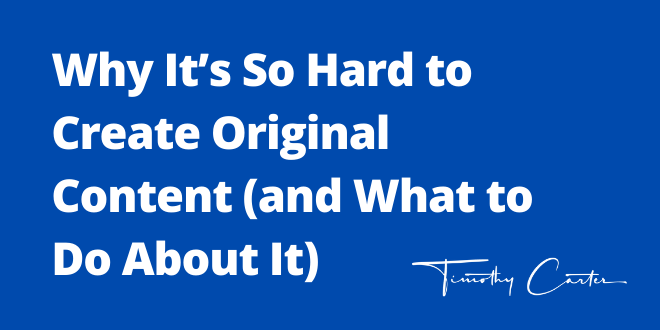
6 Ways to Increase Average Order Value for Your Online Business
July 14, 2021
Should Your Business Try Domain Hacking?
July 27, 2021One of the most common pieces of advice in content marketing is to write as much “evergreen” content as possible. Evergreen content, as the name suggests, has the potential to remain relevant indefinitely. Just as evergreen trees remain lush even in winter, evergreen content remains relevant even as seasonal trends come and go — and even as the news cycle rises and fades.
However, trend- and news-based content can also perform well, especially if you nail the timing.
So is it better to favor one over the other? Or should you attempt to mix the two?
The advantages of evergreen content
Let’s start by examining some of the advantages of evergreen content:
- Near-permanent relevance. Evergreen means “forever.” Or at least, that’s what it implies. When you create a piece of topical content, it’s only going to stay relevant for as long as that topic is relevant. Not many people are reading articles about the impending “Y2K” bug because it didn’t turn out to be anything significant (and it was 20 years ago). But writing a piece of content about improving your confidence will remain relevant for decades, at least. This staying power inherently makes the content more valuable, because it can keep referring traffic your way and boosting your brand’s reputation.
- Minimal need for upkeep. Evergreen content also requires minimal upkeep. Depending on the niche in which you’re writing, there might be occasional new developments from new technologies, new best practices, and new thought leadership — but the core of your article can and will remain unchanged. With topical content, you might be forced to make frequent updates in the days, or even hours following its publication.
- Long-term topic planning. You’ll have to respond quickly to new trends and new developments if you want to stay competitive in the topical realm. But with evergreen content, you can benefit from long-term topic planning. You can make grand plans for what you’re going to write in the future, weeks or even months in advance, without having to jump through hoops or remain at the mercy of fickle news cycles.
- Less research required. Though this isn’t always the case, many forms of evergreen content require less research and less journalistic scrutiny. You’ll have plenty of long-standing sources to call upon and you won’t have to depend on potentially unreliable sources to get information quickly.
The advantages of Ttopical content
That said, there are some major advantages to writing topical content as well.
- Capitalizing on trends. If you’ve ever played around with Google Trend, you know how quickly a topic can explode in terms of relevance and popularity. Seemingly overnight, a subject can go from barely getting noticed to having millions of people engaged in conversation about it. This is a great opportunity to capitalize on interested traffic — but you won’t be able to do it with evergreen content.
- A (potential) competitive advantage. If you can beat your competitor to the punch and publish your topical content first, you can dish out an extreme competitive advantage. If you’re both a faster and a more reliable source of news, readers are going to prefer your content to your competitor’s.
- Engagement and discussion. Newsworthy articles and topical discussions are much more likely to capture the public’s attention and generate conversations. If you’re interested in getting your readers talking to you (and to each other), topical content may be the better bet.
Finding the balance
Both evergreen and topical content have advantages, but which one is going to be better for your business? And how should you work to find that balance?
- Who is your audience? First, work to understand your target audience. Who’s going to be reading your content and what are their biggest priorities? Do they prefer to read news and stay relevant with modern times, or are they more detached from the latest trends?
- What are the tendencies of your industry? What do other brands in your industry write about? If they’re more focused on evergreen content, there’s probably a reason for it. That said, you don’t necessarily want to copy what your competitors are doing; distinguishing yourself could give you an opportunity for a competitive advantage.
- What are your primary goals? What are you hoping to achieve with your content marketing strategy? Do you want steady, long-term increases of traffic to your website? If so, evergreen content will serve you better. Do you want more immediate action and more engagement with your readers? If so, topical content may be preferable.
Ultimately, both evergreen and topical content have a place in most content marketing strategies. However, there isn’t a “perfect” recipe for how much to include of each. Do your own research and analysis to determine which balance will work best for your organization.
Originally appeared in Entrepreneur






